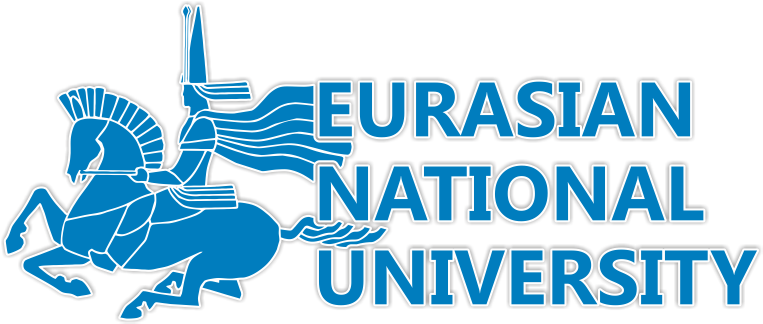PRACTICE
TYPES OF PRACTICE
According to the requirements of the state compulsory standards of higher and postgraduate education, students of the educational programs of the department undergo the following types of professional practices:
in bachelor's degree:
Educational practice - aimed at deepening knowledge in the field of construction and analysis of algorithms used in solving applied problems. Particular attention is paid to working with libraries, lists, external files and other components of the programming language being studied. The purpose of students' educational practice is to consolidate and deepen the theoretical knowledge gained in the educational process, acquire primary research skills, acquire business correspondence skills, acquire practical skills and master working skills in accordance with the specialty of study.
Industrial practice - is aimed at familiarizing with the features of the use of information technology in the enterprise, developing practical skills in the development, installation and maintenance of programs, as well as the installation and repair of computer hardware. The purpose of the internship is to gain experience in the implementation of the main production processes at the facilities: computer centers and third-party organizations (IT companies, banks, research and design institutes, TOO, etc.), the main activity of which predetermines the presence of objects and types of professional activities in this area.
Pre-diploma practice is the final stage in the preparation of a future specialist in the framework of professional practice. Pre-diploma practice is carried out by graduate students performing diploma research in the 8th semester. The pre-diploma practice is supervised by the supervisor of the thesis of the graduate student. The content of undergraduate practice is determined by the topic of the thesis. The results of undergraduate practice are summed up at the preliminary defense of the thesis (project) organized by the graduating department.
in master's and doctoral studies:
Pedagogical practice - is carried out with the aim of consolidating and deepening knowledge in general scientific, cultural, psychological, pedagogical, methodological and special disciplines; formation on the basis of theoretical knowledge of pedagogical skills and competencies; formation of practical skills and teaching methods; acquaintance of doctoral students with the specifics of the activities of a teacher of special disciplines and the formation of skills to perform pedagogical functions; consolidation of psychological and pedagogical knowledge in the field of higher pedagogy; acquisition of skills of a creative approach to solving pedagogical problems.
Research practice - is carried out in order to familiarize with the latest theoretical, methodological and technological achievements of domestic and foreign science, with modern methods of scientific research, processing and interpretation of experimental data.
PRACTICE BASES
● National Information Technologies JSC
● NJSC “State Corporation “Government for Citizens”
● National Academic Library of the Republic of Kazakhstan
● Kazakhtelecom JSC
● Kazpost JSC
● Krypton Pro LLP
● Documentolog Global Limited _
● Big Dream Lab LLP
● and others
PRACTICE TERMS
According to the academic calendar for the 2022-2023 academic year, the following terms for students to complete professional practice are determined:
Undergraduate
1st course: Educational practice - 22.05-10.06.2023, grading period - 12.06-17.06.2023
2nd course: Industrial practice - 22.05-10.06.2023, grading period - 12.06-17.06.2023
3rd course: Industrial practice - 22.05-24.06.2023, grading period - 26.06-01.07.2023
4th course: Industrial practice - 16.01-25.02.2023, grading period - 27.02-04.03.2023
4th course: Pre-graduation practice - 06.03-15.04.2023, grading period - 17.04-22.04.2023
Master's degree
2nd course: Pedagogical practice - 01.09-10.12.2022, grading period - 05.12-10.12.2022
2nd course: Research practice - 16.01-08.04.2023, grading period - 10.04-15.04.2023
Doctorate
2nd course: Pedagogical practice - 01.09-05.11.2022, grading period - 07.11-12.11.2022
2nd course: Research practice - 30.01-08.04.2023, grading period - 10.04-15.04.2023
ORDERS FOR PRACTICE
|
Bachelor's degree, 1-year course, Educational practice Bachelor's degree, 2-year student, Industrial practice Bachelor's degree, 3rd year, Industrial practice |
Master's degree, 2nd year, Pedagogical practice Master's degree, 2nd year, Research practice Doctorate, 2nd year, Pedagogical practice |
Responsible for the organization of practice at the department: Senkovskaya A.A. (bachelor's degree), Saitova R.B. (master's, doctoral studies).
EMPLOYMENT
The employment rate of graduates of educational programs "Computer Engineering and Software" is growing every year.
According to the rating of educational programs of NCE "Atameken" for 2022, the indicator "Total career prospects of graduates (analysis of employment and wages)" was 2.00, which shows a good result of the employment of our graduates of the bachelor's degree program "Computer Engineering and Software". Also according to the rating:
Median salary (in tenge) -207 225.02 tenge .
Employment rate (in %) - 87.01%.
Duration of job search (in months) – 3.25.
Every year, the department organizes scheduled and unscheduled events: meetings with employers, round tables, distribution of student resumes to employers, "Job Fair", distribution of graduates.
The results of the employment of graduates in 2022 of the EP "Computer Engineering and Software" (as of January 2023)
|
The level of education |
Number of graduates |
Employed |
% |
|
Undergraduate |
201 |
161 |
80% |
|
Master's degree |
18 |
16 |
89% |
|
Doctorate |
12 |
12 |
100% |
|
Total |
231 |
189 |
82% |
Employment results of graduates 2018-2022
Our graduates work in public and private enterprises:
● Ministries , departments, local executive bodies
● National Information Technologies JSC
● NJSC State Corporation "Government for Citizens"
● JSC Center for Human Resources Development
● JSC State Technical Service
● Kazakhtelecom JSC _
● " Yandex"
● Tengri Lab LLP
● and others
Responsible for the organization of work on the employment of graduates: Syzdykova A.M.
